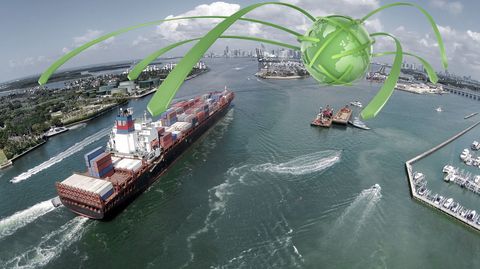Although it has been more than a year since the UK voted to leave the European Union, the decision remains a divisive issue across all levels of British society, resulting in sharply polarized disagreements over how best to proceed.
Nowhere is this more evident than in the split in opinions over what kind of approach the British government should take when it comes to negotiating a post-Brexit trade deal with the EU, with some economists arguing that a complete severing of existing ties with the continent may prove beneficial, while many others push for a softer approach that leaves as many of the current arrangements intact as possible.
With Article 50 having been triggered by prime minister Theresa May earlier this year, the clock is ticking towards the UK's formal EU exit in March 2019, meaning that a consensus on this fiercely contested issue will need to be reached sooner rather than later.
The current state of play
So far, negotiations over a post-Brexit trade agreement have not been able to commence due to a lack of progress on a number of other key issues that need to be resolved first.
The EU is looking to reach an agreement with UK on the future rights of European citizens, the status of the Irish border and the financial settlement for Brexit before any trade talks can begin. Although British ministers are keen for these discussions to happen simultaneously, there has been little evidence of a willingness on the EU's part to change its stance, meaning that trade negotiations are not likely to commence this autumn, as the UK government had hoped.
Could a "no deal" Brexit deliver benefits?
With a definitive picture of the UK's post-Brexit trade situation failing to reveal itself, a heated economic debate has emerged to fill the vacuum, with experts representing a range of perspectives stepping forward to make their own forecasts.
In recent weeks, a handful of high-profile reports have emerged to suggest that a "no deal" approach to Brexit - in which Britain leaves the union without any replacement trade deal in place, meaning it will be subject to tariffs under World Trade Organization (WTO) rules - may not be the disaster that others have predicted.
The Institute of Economic Affairs, for example, has stated that a trade deal with the EU is "desirable but not essential", and that the UK should instead be focusing its post-Brexit strategy on achieving unilateral free trade on a broader basis, complemented by free trade agreements with other major trading partners such as the US, Canada and Australia.
Jamie Whyte, research director at the Institute of Economic Affairs, said: "Many people believe that disaster will befall us if we do not forge a deal with the EU. In fact, we could unilaterally eliminate all import tariffs, which would give us most of the benefits of trade, and export to the EU under the umbrella of the WTO rules. Then we can seek free trade deals with all major trading partners, including the EU."
Meanwhile, a group of pro-Brexit economists called Economists for Free Trade recently raised eyebrows by predicting that a hard Brexit could generate an annual £135 billion (€146.37 billion) uplift to the UK economy, arguing that Britain could unilaterally eliminate trade barriers globally without a need for reciprocal deals and yield gains of £80 billion a year.
Warnings persist over hard Brexit risks
This latter study proved controversial among other economists, with Dr Monique Ebell from the National Institute of Social and Economic Research arguing that unilateral trade deals with major developing economies and the Anglosphere would only compensate for around one-third of the 20 to 30 per cent reduction in trade caused by leaving the European single market.
Campaign group Open Britain also raised concerns that scrapping tariffs without reciprocal deals in place could result in the British market being swamped by imports that cause significant damage to the domestic economy. Meanwhile, a separate report from the London School of Economics and Political Science's Centre for Economic Performance predicted that rising trade costs will result in all British cities seeing a Brexit-related fall in economic output, and that southern cities with large, high-skilled service sectors will be affected worst.
Contributing author Professor Stephen Machin said: "This research shows that focusing on the likely local economic impacts of Brexit will be a critical ingredient for policymakers when thinking about how to offset the negative economic effects that loss of trade due to Brexit will bring."
Until a clearer picture of the realities of Brexit emerge, these debates are likely to continue to rage; in the meantime, it may be best for businesses that could be affected by the transition to prepare for all possible eventualities.






